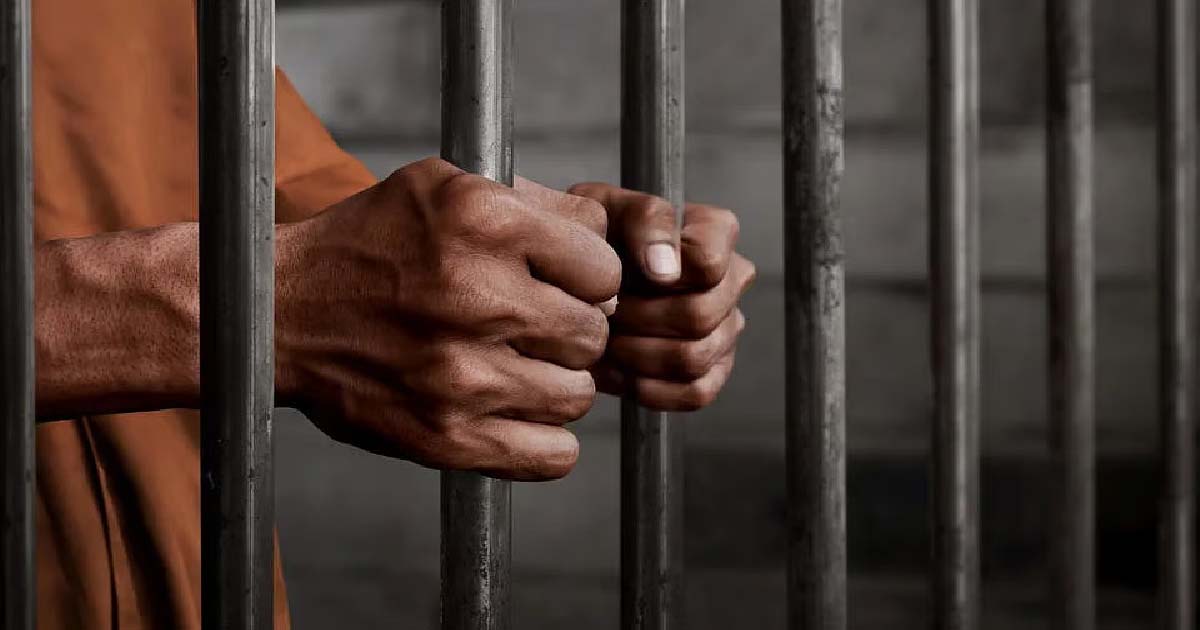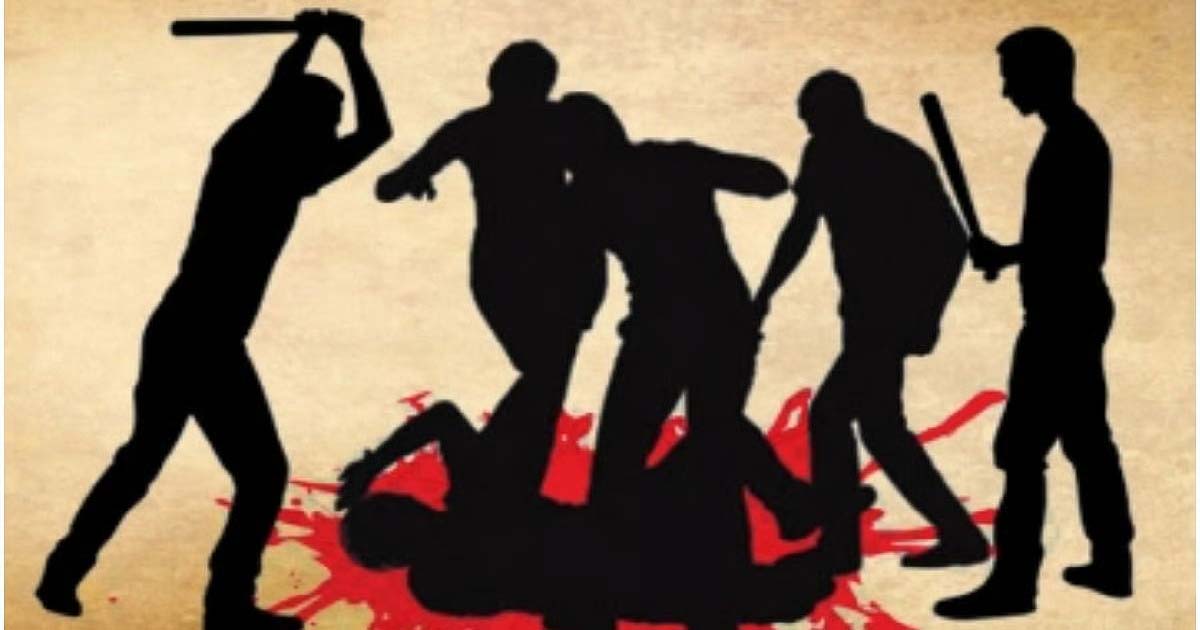Crime
‘Born Behind Bars, Still Fighting For Freedom’: The Unending Struggle Of Buldhana’s Jail-Born Man

Mumbai: Thirty years after his birth inside the Buldhana district prison, Sunil Ghule’s battle for dignity and basic rights is far from over. What began as a fight to correct a single word—“Jail”—on his birth certificate has now turned into a plea for his right to live with dignity, free from social stigma. Despite the Maharashtra State Human Rights Commission (MSHRC) acknowledging the injustice and ordering compensation, Ghule continues to face rejection—not only from authorities this time but also from his own village.
Sunil’s story traces back to 1995, when his mother, an undertrial prisoner in an attempted murder case, gave birth to him inside Buldhana District Jail. His father, Nivrutti Ghule, was also lodged in the same prison. “I was born to my mother while she was under trial. My birth took place inside the Buldhana Jail,” Ghule says quietly. His mother, accused alongside his father, was eventually acquitted. But the stigma of his birth never left him. When Ghule obtained his birth certificate years later, it recorded his birthplace as “Buldhana Jail.”
That single word, he says, destroyed every opportunity that came his way. “It followed me like a curse—in schools, in job interviews, everywhere,” he recalls. In 2023, Ghule approached the Maharashtra State Human Rights Commission (MSHRC) seeking correction of his birth records. The Commission’s order, dated May 3, 2024, became a landmark in recognising the emotional and constitutional weight of his fight.
Referring to the Maharashtra Prison Manual, the Commission observed that “births in prison shall be registered at the local birth registration office, but the fact that the child was born in a prison should not be recorded in the birth register.” Holding the authorities responsible, the Commission stated: “Even if the mother of the child is in jail at the time of delivery, the word ‘Jail’ should not appear on the birth certificate. Because of the mistake on the part of the authority, the complainant suffered for years—losing opportunities and dignity.”
The Commission not only directed the correction of Ghule’s birth certificate— now showing the name of his native village—but also ordered the state authorities to pay him Rs3 lakh compensation for the “mental torture and loss of livelihood” he suffered. Ghule’s moment of justice was short-lived. The State government challenged the Commission’s order in the Bombay High Court, arguing that he “was not in need of financial assistance” and had failed to provide documentary proof of mental and financial suffering.
The legal battle, Ghule says, has left him exhausted and hopeless. “I have lost faith in the system. The same State that wronged me for three decades now says I don’t deserve justice,” he laments. “I will argue my own case before the High Court. I don’t trust anyone anymore.” Even after his birthplace was corrected, Ghule says he continues to live as a social outcast. In his village of Nandura, Buldhana district, residents refuse to let him build a house or work. “The entire village has condemned me,” he says.
“I don’t get any job. They say I am born in jail, so I must be a criminal too. Even marriage proposals disappear once people know my background.” “I just want my fundamental right—the right to live,” he says. “I want the government to rehabilitate me in another village, somewhere I can live like a normal human being, without my past haunting my future.” Ghule’s case raises uncomfortable questions about how deeply bureaucratic indifference can scar a life.
A clerical error, perpetuated for decades, has denied him education, employment, and dignity—rights guaranteed by the Constitution itself. While the MSHRC tried to heal that wound with words of empathy and legal redress, the State’s challenge has reopened it—leaving Sunil in yet another limbo. “I was born in jail,” he says, “but it feels like I have never been freed.”
Crime
A powerful explosion near Delhi’s Red Fort… High alert across Delhi after the blast; 8 people killed; forensic team arrives at the scene.

New Delhi: A car explosion near Gate No. 1 of the Red Fort Metro Station on Monday evening caused widespread panic. The force of the blast was so intense that a part of the car landed on the Lal Mandir, located near the Red Fort. The temple’s glass shattered, and doors and windows of several nearby shops were damaged. Several people were reported injured in the incident.
Immediately after the blast, fires were reported in nearby shops. Tremors were felt as far as the Bhagirath Palace area of Chandni Chowk, and shopkeepers were seen calling each other to inquire about the situation. Several buses and other vehicles were also reported to have caught fire.
The fire department received a call about the car explosion in the evening. Following this, it immediately dispatched six ambulances and seven fire tenders to the scene. Relief and rescue operations are underway, and efforts are underway to control the fire.
The cause of the explosion is still unknown. Police have cordoned off the area, and investigating agencies are gathering evidence at the scene. Initial reports suggest the explosion occurred in a car, but its nature and cause are still unclear. Security has been increased throughout the Red Fort and Chandni Chowk areas following the incident.
Crime
Thane: Man Stabbed To Death In Dombivali Hotel After Minor Altercation

Thane: A man was stabbed to death in Dombivali in Thane district during an altercation after he accidentally brushed against another person, a police official said on Monday.
The incident took place in a hotel in the early hours of Sunday in MIDC Phase 1 area, the Manpada police station official said.
“Akash Bhanu Singh (38) and his friends were having dinner at the hotel when he accidentally brushed against the accused, who picked up a fight. He along with some others stabbed Singh to death. Two of Singh’s friends, who tried to save him, also sustained injuries and have been hospitalised,” the official said.
Four persons were booked under Bharatiya Nyaya Sanhita sections for murder and other offences, though no arrest has been made, he said.
Crime
‘Don’t You Know Marathi?’: Vadapav Vendor & Two Others Assaulted By Four Men Over Language Dispute In Kalyan

Mumbai: In a troubling incident on Sunday night in Kalyan East near Chakkinaaka and Santoshnagar, a vadapav vendor and two of his companions were brutally assaulted by four men. The attack occurred after the assailants asked the vendor, “Do you know how to speak Marathi?” and began the assault when he did not respond affirmatively.
The vendor, identified as Vishnu Thapa, and his co-workers told police at the Colsewadi station that they work at a small eatery named Riddhi Bhojanalay. Around 8 pm two unknown men arrived at the shop, ate food and left. They returned shortly after and confronted Thapa with the question “Marathi yet nahi ka?” (“Don’t you know Marathi?”). Without waiting for a response they started beating him. He suffered serious injury to his nose in the first attack.
After the two men left, Thapa and his colleagues resumed work. Minutes later the men returned, this time bringing two others. The group of four again raised the language question and launched a fresh attack. Co-worker Madan Thapa was hit with a stone slab. Another colleague, Ali Khan, had his mobile phone smashed to the floor amid the chaos. The assailants also vandalised the shop, throwing food, utensils and trays outside.
The three victims were taken to hospital for treatment. A First Information Report has been registered at the Colsewadi police station and investigations are underway, with Police Constable Jadhav assigned to the case. Locals say the area has long been troubled by harassment of street vendors and extortion attempts; some offenders had been removed by police about 18 months ago.
The incident has raised serious concerns among workers and local vendors who feel vulnerable in the wake of such attacks. For many migrants eating and operating in the city, language and region should not become triggers for violence. City police have been urged to increase patrols in the zone and ensure protection for small street-vendors, especially during late evening hours.
-

 Crime3 years ago
Crime3 years agoClass 10 student jumps to death in Jaipur
-

 Maharashtra1 year ago
Maharashtra1 year agoMumbai Local Train Update: Central Railway’s New Timetable Comes Into Effect; Check Full List Of Revised Timings & Stations
-

 Maharashtra1 year ago
Maharashtra1 year agoMumbai To Go Toll-Free Tonight! Maharashtra Govt Announces Complete Toll Waiver For Light Motor Vehicles At All 5 Entry Points Of City
-

 Maharashtra1 year ago
Maharashtra1 year agoFalse photo of Imtiaz Jaleel’s rally, exposing the fooling conspiracy
-

 National News1 year ago
National News1 year agoMinistry of Railways rolls out Special Drive 4.0 with focus on digitisation, cleanliness, inclusiveness and grievance redressal
-

 Maharashtra12 months ago
Maharashtra12 months agoMaharashtra Elections 2024: Mumbai Metro & BEST Services Extended Till Midnight On Voting Day
-

 National News1 year ago
National News1 year agoJ&K: 4 Jawans Killed, 28 Injured After Bus Carrying BSF Personnel For Poll Duty Falls Into Gorge In Budgam; Terrifying Visuals Surface
-

 Crime1 year ago
Crime1 year agoBaba Siddique Murder: Mumbai Police Unable To Get Lawrence Bishnoi Custody Due To Home Ministry Order, Says Report












